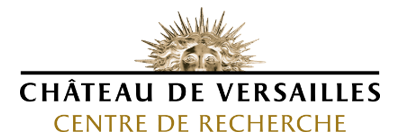
Correspondance de Johannes Hevelius – Tome III, correspondance avec Pierre des Noyers, secrétaire de la Reine de Pologne


Work published with the financial support of the CRCV.
Chantal Grell, with the collaboration of Damien Mallet, Correspondance de Johannes Hevelius – Tome III, correspondance avec Pierre des Noyers, secrétaire de la Reine de Pologne, Brepols, collection “De Diversis Artibus” (DDA 106 (N.S. 69)), 2020, VIII+735 p., 35 ill., 156 x 234 cm, €105 (ISBN: 978-2-503-58780-6).
Abstract
Pierre des Noyers (1607-1693) was secretary and confidant to Princess Marie de Gonzaga-Nevers (1618-1667), wife of Wladyslaw IV of Poland. He accompanied her to Warsaw. It was on the occasion of the queen’s entry into Dantzig that he first met Hevelius. A long correspondence ensued (1646-1686), which only ended on the death of Hevelius in January 1687. A pupil of the mathematician Roberval and acquainted with Mersenne and Jean-Baptiste Morin, des Noyers was a man of science who introduced Pascal’s calculating machines into Poland, who observed the stars with a telescope, followed the controversy of the vacuum (1647) and sought to make an exact science of astrology. Although not believing in this, Hevelius shared his interest in precision. Their correspondence was filled with information about the circulation of discoveries, observations and books. Pierre des Noyers was also a very useful friend for Hevelius as he had close connections with the court of Poland and links to the many Italians who frequented it, in particular the engineer Tito Livio Burattini, as well as conducting a weekly exchange of letters with Ismaël Boulliau. A diplomat in the service of the queen, Boulliau lived in France for several periods and ensured that Hevelius’ books were circulated in Europe. Pierre des Noyers is seen as a scholar of the Baroque age, a man of many interests. His world was that of the enlightened court of Warsaw, fascinated by astrology, chemical medicine and knowledge of the occult. A Jansenist by conviction, he introduced Pascal’s Provinciales into Poland, and the concept of vampires into France. Using Florentine thermometers, he produced the first systematic, meteorological records in Poland. He also patiently built up a “French party” and we know that Hevelius, awarded a pension by Louis XIV, represented French interests in Dantzig, where he undertook consular duties. This correspondence, against the background of the ongoing wars that afflicted the kingdom, reveals the daily life of an isolated scientist: concerns about money, problems with the delivery of mail, academic jealousies and rivalries, difficulties in keeping informed. His loyal and devoted friend, Pierre des Noyers helped and supported Hevelius on the day after the fire that destroyed his observatory (1679).
Professor of Modern History at the université de Versailles-Saint-Quentin, specialist in historiography and the history of courts, Chantal Grell edited the first volume of this correspondence (Prolégomènes critiques) and published volume II: Correspondance avec la Cour de France.







